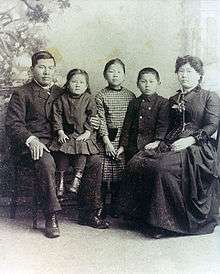Tape v. Hurley

Tape v. Hurley, 66 Cal
Background
Mamie Tape was a Chinese American born in San Francisco. Her parents, Joseph Tape (1852–1935), and Mary McGladery Tape (1857–1934), were both immigrants from China. Joseph Tape was a businessman and an interpreter for the Chinese consulate, while Mary Tape was an amateur photographer and artist.
Issue
In 1884, Mamie, then eight years old, was denied admission to the Spring Valley School, because of her Chinese ancestry. Her parents sued the San Francisco Board of Education. They argued that the school board's decision was a violation of the California Political Code, which stated:
"Every school, unless otherwise provided by law, must be open for the admission of all children between six and twenty-one years of age residing in the district; and the board of trustees, or city board of education, have power to admit adults and children not residing in the district, whenever good reasons exist therefor. Trustees shall have the power to exclude children of filthy or vicious habits, or children suffering from contagious or infectious diseases."
On January 9, 1885, Superior Court Justice McGuire handed down the decision in favor of the Tapes. On appeal, the California Supreme Court upheld the decision.
He wrote that "To deny a child, born of Chinese parents in this state, entrance to the public schools would be a violation of the law of the state and the Constitution of the United States."
Results
After the decision, the San Francisco school board lobbied for a separate school system for Chinese and other "Mongolian" children. A bill passed through the California state legislature giving the board the authority to establish the Oriental Public School in San Francisco.
Further reading
- Kuo, Joyce (1998). "Excluded, Segregated and Forgotten: A Historical View of the Discrimination of Chinese Americans in Public Schools". Asian American Law Journal. 5: 181. ISSN 1939-8417.